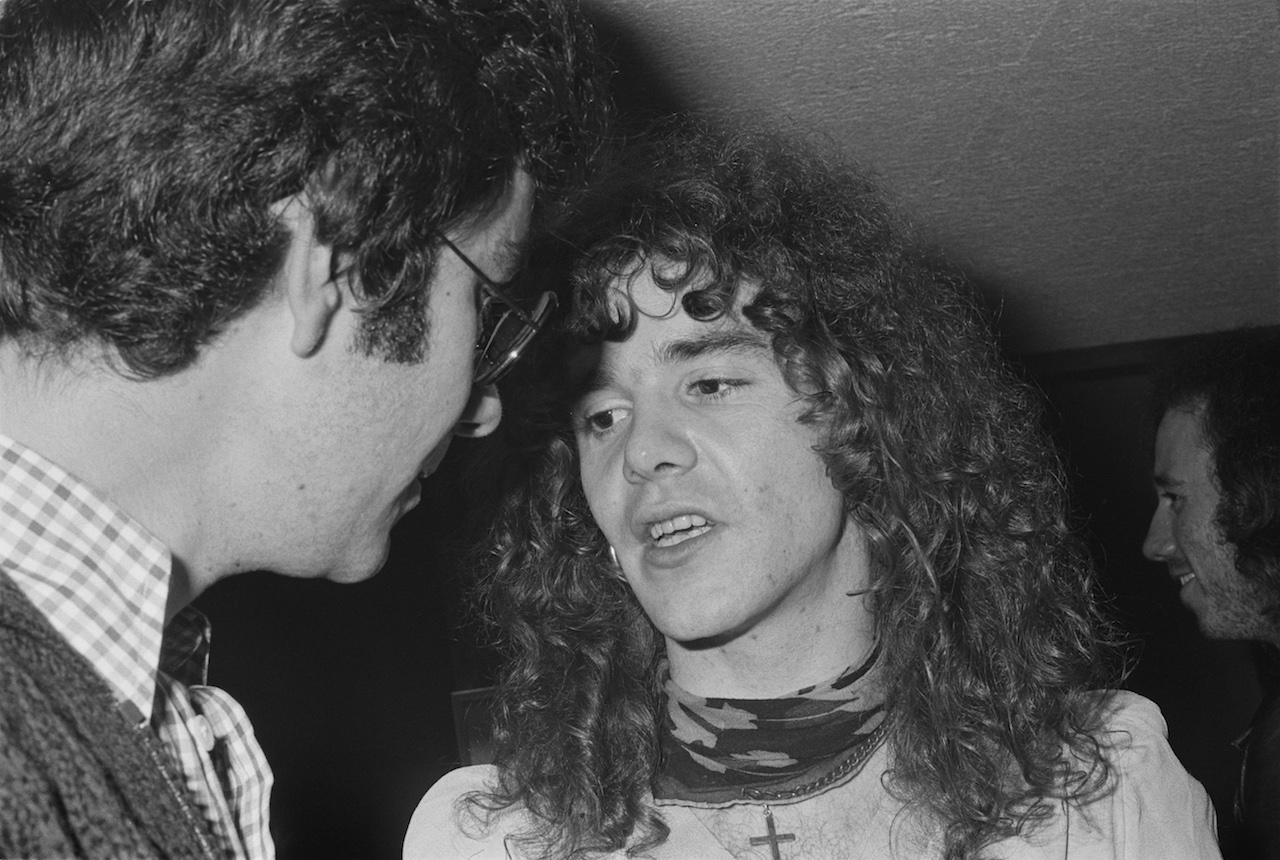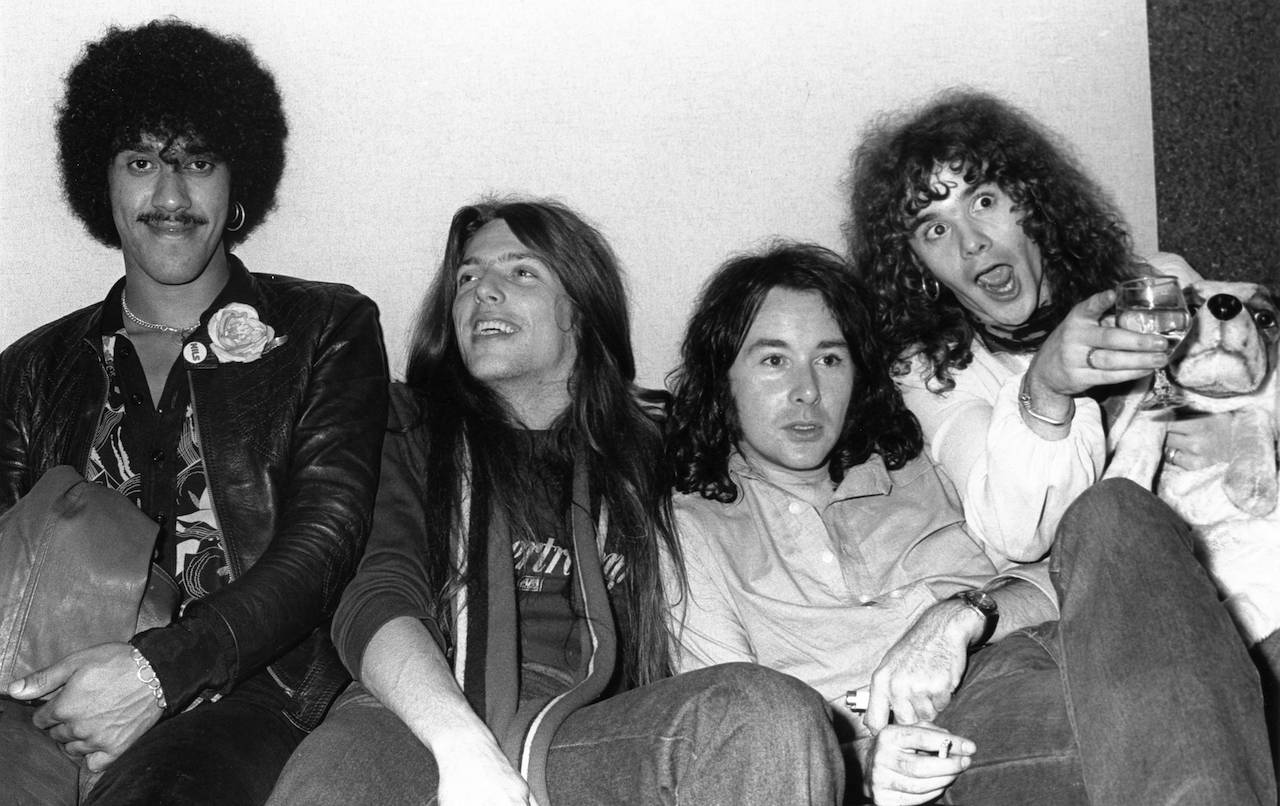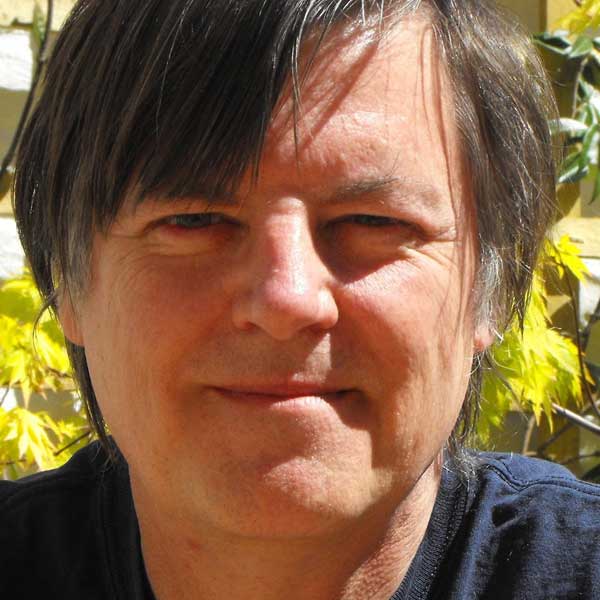Even by Thin Lizzy’s standards Brian Robertson was a live wire. The Glaswegian was an integral part of the band’s rise to fame during the mid-70s, though his fiery guitar-playing skills were more than matched by his temper and his fondness for booze.
It was the latter that landed him in trouble in the early hours of Tuesday, November 23, 1976. That was the night before Lizzy were due to fly to the US, for a tour that they were hoping would transform them from homeland heroes to transatlantic superstars. The bags were packed, the plane tickets were booked, and the road crew were already in New York preparing for their arrival.
Unfortunately that was the night that Robbo decided to nip down to notorious London West End watering hole The Speakeasy for a late-night snifter. What followed was a bloody onstage fight that ended up with the guitarist in hospital and Lizzy’s US tour cancelled.
Chris O’Donnell [co-manager, Thin Lizzy]: Brian was desperate to be accepted by his peers. That meant he had to emulate everything Phil Lynott did. He had to have the same rock ’n’ roll swagger, had to drink as much, smoke as much and fight as much as Phil. It was wearing out Philip and the band.
Frank Murray [tour manager, Thin Lizzy]: That tour was really important. We were trying to capitalise on the success of Jailbreak and The Boys Are Back In Town, which had done well, so the idea was to go to America and follow up on that.
Brian Robertson: I shouldn’t have been in The Speakeasy. It was the night before I was supposed to fly to America, I had packed my suitcase, but I was sitting in my flat, there was nothing to eat, so I went out to have a meal.
Ray Minhinnett [guitarist, Frankie Miller’s Full House]: Frankie and I had done a radio show that evening, then we’d gone down to The Speak.
Brian Robertson: I didn’t know Frankie was going to be there. I didn’t even know what band was playing. I just went to have a nice pepper steak and some champagne. After my meal, that night’s band, [disco/R&B outfit] Gonzalez, asked me up to play, so I did. I think I probably had about two whiskies. I was stone-cold sober, as opposed to young Frank who was seven sheets to the wind. At the end of the set I was just taking my guitar off, getting ready to go into the dressing room at the back of the stage. Frank wasn’t invited up but he kinda like barrelled on to the stage.
Ray Minhinnett: I was behind Frankie and Robbo, when the trouble just blew up out of nowhere.
Brian Robertson: I don’t remember what triggered the whole damn thing. I think Frank probably cheesed somebody off. I turned round and saw this guy going for Frank with a broken bottle and I just thought: “No, no. That’s not right”.
Ray Minhinnett: It started because they [Gonzalez] said: “You’re not getting up”. Frankie retorted, Brian retorted, I didn’t say a fuckin’ word.
Brian Robertson: Frankie was, well, ‘legless’ is not the word, really. He was actually on all fours crawling around the stage.
Ray Minhinnett: That’s not how I remember it. Frankie was by the wall on the right of the door, leaning into the dressing room. Brian was standing beside him…
Brian Robertson: …when the guitar player, that twat Gordon [Hunte, of Gonzalez], smashed the bottle and went straight for Frank’s face.
Frankie Miller: He’d broken it, and was about to screw it in my face, and Brian put up his arm and got it instead of me. I was legless; couldn’t even see.
Ray Minhinnett: Brian stuck his hand up. I couldn’t believe he did it. The blood just fountained out of Brian’s finger.
Brian Robertson: The glass went straight through my fingers, then sliced down and cut the tendons and nerves. It cut an artery as well, so there was blood spouting all over the stage.
Frankie Miller: After Brian got cut I just remember hitting three people – one with my head, one with my boot, one with my fist.
Ray Minhinnett: I ran to the door of the restaurant, just a few yards away, grabbed a couple of tea towels, ran back, wrapped his hand up with his finger, which was hanging on a thread. I’ve never seen so much blood! Me and Norman Watt- Roy [bassist with Ian Dury And The Blockheads] got him by the elbows, his feet were virtually off the floor, and we ran him through The Speak, up the stairs, and luckily there was a minicab outside. We got him into the cab and down to St. Mary’s Hospital. I tell you, the back of that cab was about a quarter-of-an-inch deep in blood. We were sitting in Robbo’s blood.
Brian Robertson: I had to have a blood transfusion and I was in surgery for quite a while. They put a cast on it, and basically told me I would never play guitar again. They were entirely wrong about that. I left after they stitched me up. I met Frankie in the lobby of the hospital. He’d been brought in at the same time as me. He was being shown out, staggering, by a couple of nurses. He was going: “Take me back in. X-ray my head!”. He thought he’d been battered.
Chris O’Donnell: I was asleep at home in West London until I got a phone call from Brian in St. Mary’s Hospital in Paddington at two o’clock in the morning. He told me this fracas had happened at The Speakeasy, so I got in my car and drove over. I will never forget going into A&E and seeing Brian with his hand completely wrecked and Frankie Miller, having passed out, lying on a trolley in the corridor. He was all dressed in black, hands folded on his chest, and his hat on top of his hands. I thought he was dead.
Chris O’Donnell: I took Brian across the road to the only all-night Wimpy in London, gave him black coffee and then put him in a cab home. The road crew were already in America preparing for the tour, and the band were due to fly out that next morning. I had to call and tell them it was off.

- Scott Gorham on 40 Years of Thin Lizzy's Jailbreak
- Quireboy Spike's celebration of Frankie Miller
- The 10 Best Thin Lizzy Songs, by Europe's Joey Tempest
- Brian Robertson:
Frank Murray: Everybody was jazzed up for the tour, when I got the phone call at my hotel in New York. I was told we had to cancel the tour, and would I talk to the agents and the record company. Later, I was on the phone to get some people down from Glasgow, but I knew that if I did that it would turn into a war, and people get killed in wars.
Scott Gorham [guitarist, Thin Lizzy]: Phil [Lynott] was beyond livid, man. He was enraged that Brian could put the band in jeopardy like that. Everybody in the band knew how important this tour was for us. Phil was beyond being able to speak, even. So Brian was out of the band right at that moment.
Brian Robertson: I wasn’t, at that point, told I was out of the band, but I kinda figured, you know, “That’s that”. I had no expectations of staying with Lizzy. I perfectly understood that they had to get on with their career. I started ripping the bandages off before they even took the stitches out, and I tried to play scales and stuff, but the wound burst open again. I had to go back to hospital twice or three times to get it re-stitched. They thought I was mad. It was my fault for being in The Speakeasy, but that’s all I’ll hold my hands up for.
Chris O’Donnell: About a week later, myself and Chris Morrison, the co-manager, flew to New York to meet with the record company to decide what we should do. Postpone the tour? Wait until Brian was ready? It was hard to know what the outcome would be. While I was in New York, though, Queen’s agent was trying to track me down, because for their next tour Queen were trying to recreate the atmosphere they’d had when they toured America as support band to Mott The Hoople. Thin Lizzy were their favourite band, so they wanted them as support. So we accepted that offer with alacrity. Which meant drafting Gary Moore back in.
Scott Gorham: Not only was Gary a great guitar player, but he already knew a good portion of the material. And the stuff that he didn’t know, we just kinda threw at him over the next two or three days. When we got to America we went in to a rehearsal room and just pounded it out, and the next day we were up and running.
Chris O’Donnell: We just kind of stopped working with Brian. We gave him an ultimatum, because there was an ongoing drink problem, then the injury, and there was a multitude of sins that had gone before.
Brian Robertson: Obviously, I kept in touch with the lads. Just a couple of days after I’d finally got the stitches out, I went to see them play. Phil asked me to get up. I didn’t want to, because it was still hurting a lot. I was still on loads of painkillers, and my hand was very swollen. But you know what Phil’s like. And Gary was the same: “Come on, Robbo. Get up”. So I wasn’t going to back down. But it was probably the most painful gig I’ve ever played. It was a bad wound, so it was a long time getting back. I had to learn how to play guitar again, and to this day I still have no feeling in one of my fingers.
WHAT HAPPENED NEXT?
Brian Robertson recovered from his injury, and was even credited on three tracks on Thin Lizzy’s next album, Bad Reputation, although he never officially rejoined the band. Stints in Wild Horses and Motörhead followed, but his career never reached the same heights as during his time with Lizzy.
Frankie Miller continued to write and record. He suffered a brain haemorrhage in 1994, which put him in a coma for five months. Although now confined to a wheelchair, he still writes and produces music.
Gonzalez achieved some success in the disco era but disbanded in 1986. Guitarist Gordon Hunte now works with his new band, Mid Nyt Sun, in Australia.

